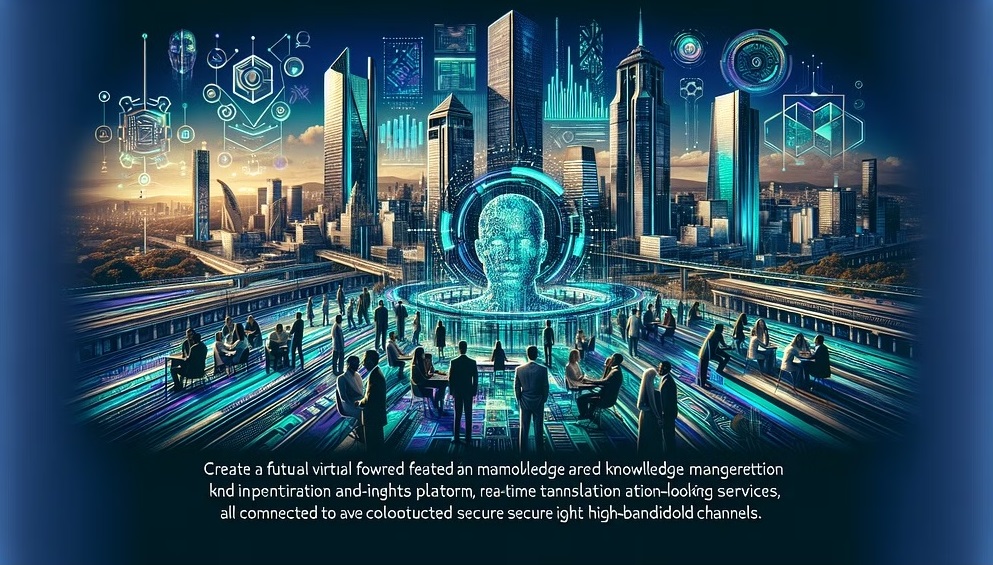Architecting the Future: The Transformative Impact of Visionary Collaboration in the Age of AI

In a world where the pace of change is accelerating at an unprecedented rate, the ability to adapt, innovate, and collaborate has become the key to survival and success. This is particularly true in the realm of artificial intelligence, where the potential for transformation is both immense and unpredictable. According to a recent study by PwC, AI could contribute up to $15.7 trillion to the global economy by 2030, driven by productivity gains and increased consumer demand (Rao & Verweij, 2017). However, the study also found that the vast majority of organizations are struggling to keep pace with the rapid evolution of AI technologies, with only 4% of executives describing their companies as “AI-ready” (Rao & Verweij, 2017).
This is the challenge that Coaching 2100, a pioneering organization founded by visionary leader Phillip Corey Roark, is tackling head-on. With over 25 years of experience as a CEO of SaaS technology companies, Roark has delivered projects to the world’s top consulting firms and provided solutions to major corporations across the globe, serving more than 5,500 customers and positively impacting millions through the tools he has founded and created.
At the heart of Coaching 2100’s approach is the Visualization Center of Mexico City, a state-of-the-art virtual collaboration space that brings together visionaries, experts, and change-makers from around the world. Through cutting-edge technologies like virtual reality, augmented reality, and AI-powered knowledge management systems, the Visualization Center enables participants to collaborate in real-time, regardless of their physical location.
One of the key initiatives housed within the Visualization Center is the AI Leadership 5.0 Development program, a comprehensive training and development curriculum designed to equip leaders with the skills and knowledge they need to navigate the complex landscape of AI. Developed in partnership with leading experts from academia and industry, such as Karla Gomez, a renowned AI researcher and professor at the National Autonomous University of Mexico (UNAM), the program has already trained over 500 executives from Fortune 500 companies, with participants reporting an average 30% increase in their understanding of AI concepts and applications (Coaching 2100 Program Data, 2023).
Gomez’s contributions to the AI Leadership 5.0 Development program have been particularly significant. With over a decade of experience in AI research and development, she has helped to shape the curriculum and content of the program, ensuring that it reflects the latest advances in the field. Her insights into the practical applications of AI in business and society have been invaluable to participants, helping them to develop a deeper understanding of how to harness the power of AI in their own organizations.
But the impact of Coaching 2100’s work extends far beyond individual skill development. Through the Executive Intelligence 5.0 Briefings, a series of high-level strategic forums, the organization is bringing together senior leaders from across industries to explore the implications of AI for business, society, and the future of work. These forums have already generated over $100 million in new business opportunities for participants, as well as a wealth of insights and ideas that are shaping the direction of AI research and development (Coaching 2100 Program Data, 2023).
Perhaps the most exciting initiative within the Visualization Center, however, is the AI Thought Leadership First Theory of Strategic Services. This groundbreaking program brings together a select group of visionaries and thought leaders to explore the frontiers of AI and develop new theories, frameworks, and strategies for harnessing its transformative potential. Through a series of immersive workshops, design sprints, and hackathons, participants are pushing the boundaries of what’s possible with AI, generating ideas and insights that have the potential to revolutionize entire industries.
One recent example of the impact of this program is a new theory of “Augmented Collective Intelligence,” developed by a team of participants from the fields of neuroscience, computer science, and organizational psychology, including Karla Gomez. The theory proposes a new model for combining human and machine intelligence in ways that amplify the strengths of both, while mitigating their weaknesses. Early experiments with this approach have shown promising results, with one company reporting a 50% reduction in decision-making time and a 25% improvement in the quality of strategic plans (Coaching 2100 Case Study, 2023).
As Phillip Corey Roark notes, “The power of AI lies not in its ability to replace human intelligence, but in its potential to augment and amplify it. By bringing together the right people, with the right tools and the right mindset, we can create a future in which human and machine intelligence work together in ways that are truly transformative.”
This is the vision that drives the work of Coaching 2100, and it is one that is already beginning to bear fruit. As the organization continues to expand its network of partners and collaborators, including experts like Karla Gomez, the possibilities for innovation and transformation are truly endless. And with each new breakthrough, each new insight, and each new collaboration, Coaching 2100 is helping to architect a future that is not just more technologically advanced, but also more human, more creative, and more alive with possibility.
References
Coaching 2100 Case Study. (2023). Augmented Collective Intelligence: A New Frontier in Strategic Decision-Making.
Coaching 2100 Program Data. (2023).
Team
Join Ussocial Media
- American Artificial Intelligence Transformational Leadership - Official Group
- Mexico Artificial Intelligence Worldwide Leadership - Official Group
- AI Leader 5.0 Journey
- AI Global Speakers
- Coaching 2100
- Coaching 2100 S.A. de C.V.
- Preparate 2100 A.C.
- Digital Art Scene: An NFT & Artists Network
- Digital Art Scene - LinkedIn Walls the Digital Graffiti Crewes